The Portland metro area is on track for a record year of fundraising.
Fast-growing companies have garnered interest from investors to the tune of almost $1 billion for the year — and when the final tally is done, it will likely top that lofty dollar amount.
We have written about dozens of startups in 2021 across multiple industries, and founders have shared their ideas, challenges, wins and misses. To follow, you’ll meet 13 of them in the first of what we’re planning to be an annual feature of startups of watch.
Selecting a baker’s dozen from among the young companies we’ve featured in 2021 was no easy task. Our selection is by no means exhaustive. The collection of companies here, though, offers a window into the highlights that marked the startup year in Portland.
Some of the companies featured have raised money from investors, some are still on that journey, and others are deciding if they want outside capital at all.
You will notice a common theme, and that is that timing matters — a lot. Covid forced companies to adapt, and in many cases it drove innovation as startups reacted to the changing needs of customers.
You’ll see plenty of that on display here. Enjoy!
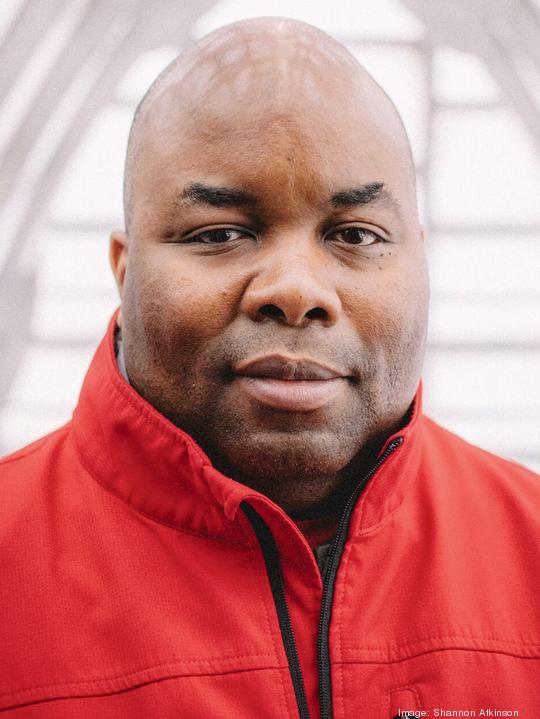
Chnl (sounds like channel)
Headquarters: Portland
Founder(s): Shannon Atkinson
What it does: It’s a social media and content platform designed from the ground up with privacy at the center and a focus on services people want and are willing to pay for. This product focus is meant to ensure the users, not advertisers, are centered.
The latest: Atkinson, a longtime Portland software developer, built the core functions and gathered a waiting list of 14,000 people ahead of the beta launch.
Why you should watch it: Social media giants are facing increasing government scrutiny, calls for misinformation control, privacy and safety from harassment. As users become more dissatisfied there may be room for something new to emerge. It’s a tall order and one that could take some big investments, the size of which are not usually seen in the Rose City. But, at the same time, why not a company from Portland?
What’s next: Chnl is gearing up to launch a closed beta pulling these early users from its waitlist. Atkinson plans to open the platform to 100 people a week. He anticipates a full launch in 2022’s first quarter.
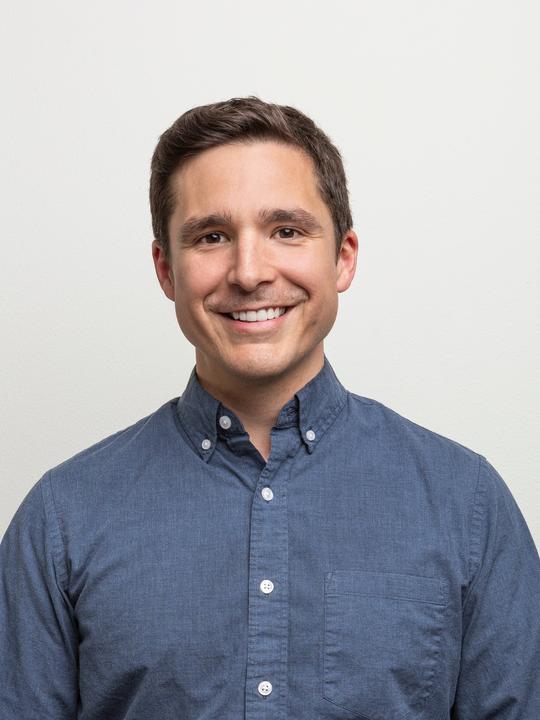
The Wild
Headquarters: Portland
Founder(s): Gabe Paez
What it does: The startup makes a virtual and augmented reality collaboration tool that allows users in different locations to work in and manipulate the same virtual space. This can be done in real time or at different times, with users always seeing up-to-date versions.
The latest: The company raised $2 million from investors earlier in May, led by existing backer At.inc and including existing backers Elevate Capital, Portland Seed Fund and Oregon Venture Fund. The company has found a market in the architectural, engineering and
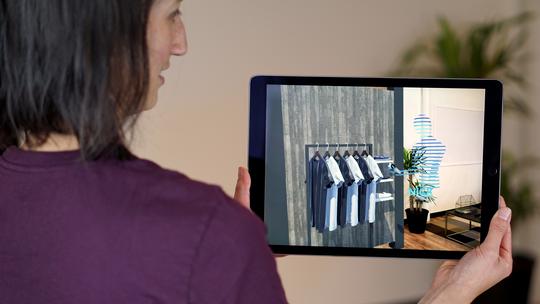
Why you should watch it: The Wild had been generating buzz for several years before it emerged with a product aimed at the AEC industry. Those in the know locally were talking about the company’s take on VR and the user’s interaction with the environment. The Wild’s extended reality, which works with AR and VR capable devices, saw a boost during the pandemic when remote work was the only option and a VR meeting space became key. Fast forward to fall 2021, and Facebook’s pivot to Meta and the metaverse, and The Wild’s years of extended reality work might be hitting at the right time.
What’s next: The company made its first acquisition at the start of the year, buying the assets of IrisVR’s flagship products Prospect and Scope. The momentum from a record 2020 plus the acquisition led investors to bring more resources and accelerate growth. The company now has nine open positions on its website for roles around the world across sales and engineering.
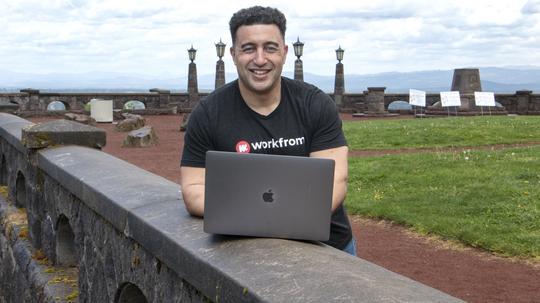
Workfrom
Headquarters: Portland
Founder(s): Darren Buckner, Brooke Hurford
What it does: The company has been around since 2013 and has built a community of more than 120,000 remote workers (all before remote work became the norm for many employees). It has a database of vetted locations for remote work — in places like cafes, bars and libraries — as well as software tools to help remote workers. It also has a platform for virtual spaces where users can remotely work together regardless of physical location.

The latest: When the pandemic upended the company’s initial product, Workfrom created a virtual spaces product. Since then, 5,000 of these virtual cafes have been created. Users have spent 46,000 hours in those spaces. The company has been largely bootstrapped, raising just $350,000 over the years from accelerators, family and friends, and angels. Last year, it received a $50,000 investment from Google as part of the search giant’s $5 million Google for Startups Black Founders Fund.
Why you should watch it: Buckner has evangelized remote work since before it was cool. He saw more workers looking for flexibility around where and when work happens, and he has been all in on that trend. The pandemic likely accelerated that as more people are evaluating their work experience.
What’s next: With its virtual spaces, the company envisions a new way for communities, and company teams, to grow and come together. They are going all in on helping companies use these virtual spaces as an added employee perk and see a future where employees get their own virtual spaces along with email addresses. Within a space, users can share audio, video and ambiance with others. If users want, they can turn on their cameras and be seen or not. In most cases, everyone is muted and instead hear the shared sounds of a space. Users can interact with other people they can see through chat.

Radious
Headquarters: Portland
Founder(s): Amina Moreau, iLan Epstein, Brian Hendrickson
What it does: A marketplace that rents out home offices and meeting spaces and helps workers find such spaces to buckle down. Think of it as Airbnb, but instead of staying overnight, spaces are rented by the day for on-demand work or meeting space.
The latest: The company landed a $25,000 investment from Portland Seed Fund as part of the Bend Venture Conference in October. Radious was one of the early stage pitch competition winners.
Why you should watch it: Like other startups on this list, it’s a matter of timing. Radious is building a platform to not only help folks who might have extra space generate income but also those who are working from home and in need of more space.
What’s next: The platform is in live beta in Portland. The team plans to expand soon.
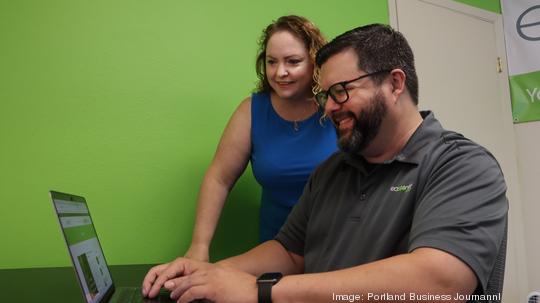
Easeenet
Headquarters: Portland
Founder(s): Erin McCune, Andrew Kallenberger
What it does: An online platform that stores, organizes and updates in real-time passwords and important documents that can be accessed by loved ones and estate executors after someone dies or is incapacitated.
The latest: The company was a finalist in the Angel Oregon Tech competition and pitched on stage at TechFestNW in April. It was also a finalist for the OEN Early Stage award this year. It was in the 2021 cohort for the Mass Challenge accelerator.
Why you should watch it: The company went live in April 2020 and already has paying subscribers generating $11,000 monthly in recurring revenue. As more of life becomes digital the need for digital estate management arises. The company has worked with organizations like TiE XL Bootcamp and Founder Gym to help get ready.
What’s next: The company is targeting partnerships with organizations like AARP. They are also launching a national partnership with an in-home care provider and signed on new businesses to offer the tool as an employee benefit.
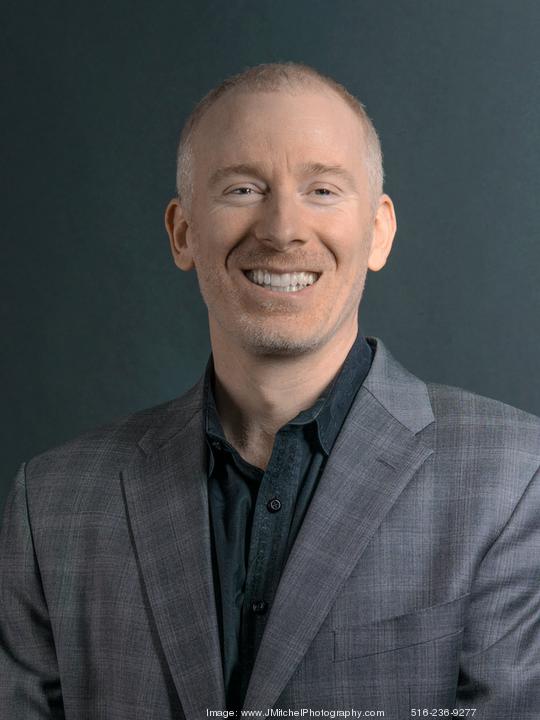
Bumped
Headquarters: Portland
Founder(s): David Nelsen
What it does: A platform that allows consumers to receive fractional shares of publicly traded brands. The idea is to offer consumers small ownership in the brands they love as a shopping loyalty reward. The company’s broader mission is to open the world of stock ownership to more people.
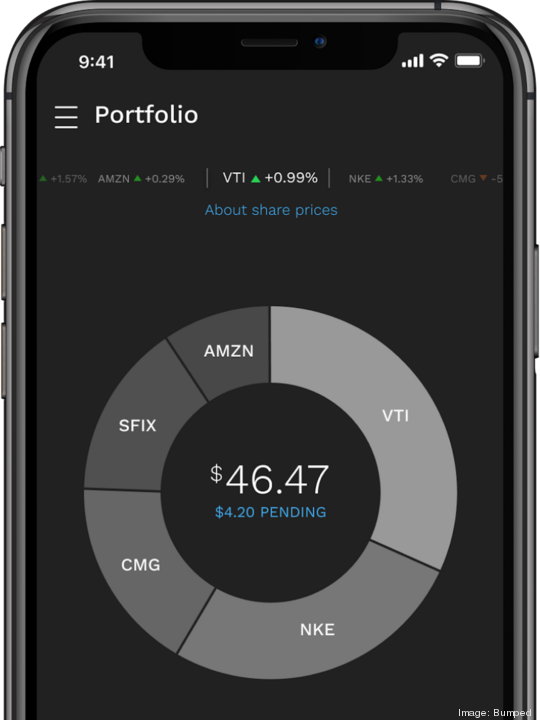
The latest: Bumped has raised $27.5 million since it was founded in 2018. In October it named former Acorns executive Babak Farrokh-Siar as chief revenue officer.
Why you should watch it: Financial tech is a hot space, as is the area of helping nurture more stock purchasers and investors. Bumped is exploring this in the world of loyalty rewards. In Farrokh-Siar, the company gains an exec who has spent years successfully convincing brands to invest in consumers through the Acorns’ Found Money program. Plus, this is the second go around for Nelsen in the fintech space. He previously founded Giftango, a digital gift card company that was acquired in 2013 by InComm.
What’s next: Bumped has its own app but also can white-label with partners. Expect to hear more about those efforts in the coming months.
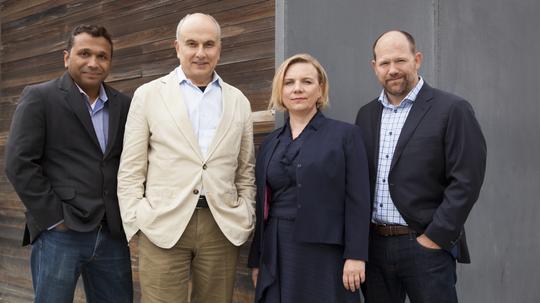
Sila
Headquarters: Portland
Founder(s): Shamir Karkal, Alexander Lipton, Angela Angelovska-Wilson, Isaac Hines,
What it does: Sila is building an application programming interface layer that helps other companies digitize payments. Sila’s APIs help developers verify identities, link payments, deposit and credit accounts, and transfer money. It’s all done in regulatory-compliant ways. The company bridges the needs of new fintech companies and the legacy infrastructure used by financial institutions.
The latest: This fall Sila raised $13 million from investors and named financial technology and payments veteran Rick Holt as vice president of sales.
Why you should watch it: Again, fintech is a hot space and Sila aims to provide a key piece of infrastructure in that space. The basis for the company’s product came from CEO Karkal’s own experience starting and growing the online banking startup Simple, which wanted to remake the banking experience. The company already has more than 100 paying customers.
What’s next: Sila continues to hire and further build out the product.
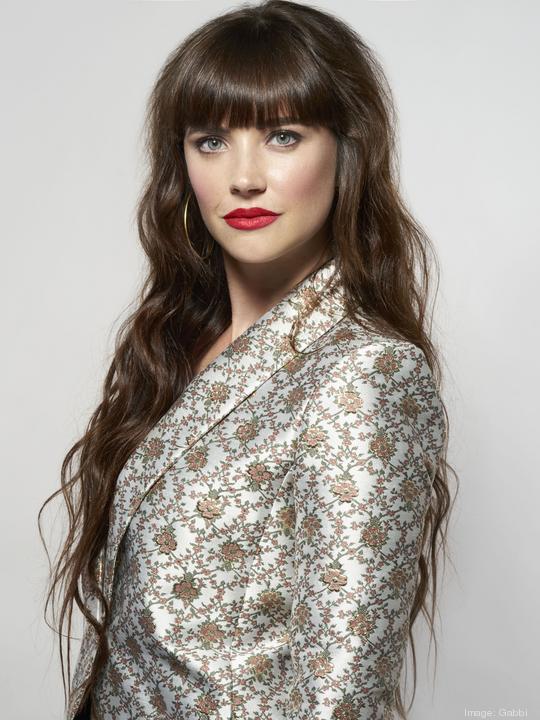
Gabbi
Headquarters: Portland
Founder(s): Kaitlin Christine
What it does: Gabbi building a product to help women better understand their risks of breast cancer, then formulate action plans that can be taken to their health care provider. It also builds a network of women in the same risk population who can support one another.
The latest: Earlier this year, the company raised $1 million from investors and ran a pilot with a national insurer to test accuracy against existing models. It also won the Early Stage Award at this year’s OEN awards.
Why you should watch it: Gabbi is all about fighting the problem of delayed diagnosis in women’s health care. It’s gathered backers such as DNA company 23andMe CEO Anne Wojcicki. The company uses existing risk models but adds expanded and weighted elements of ethnicity, age and other social factors. It’s targeting insurance companies as customers to offer the tool in the growing focus area of preventative care.
What’s next: Gabbi is running pilots and further developing the tool.
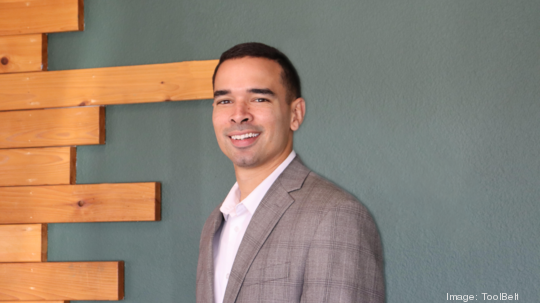
Toolbelt
Headquarters: Vancouver
Founder(s): Josh Engelbrecht, Ross Barbieri
What it does: An app that connects residential homebuilders and general contractors to subcontractors, skilled or general labor. Builders and general contractors can post projects and tradespeople can easily search by project to find work. Builders and contractors can also search an active database of tradespeople to find folks in different specialties.
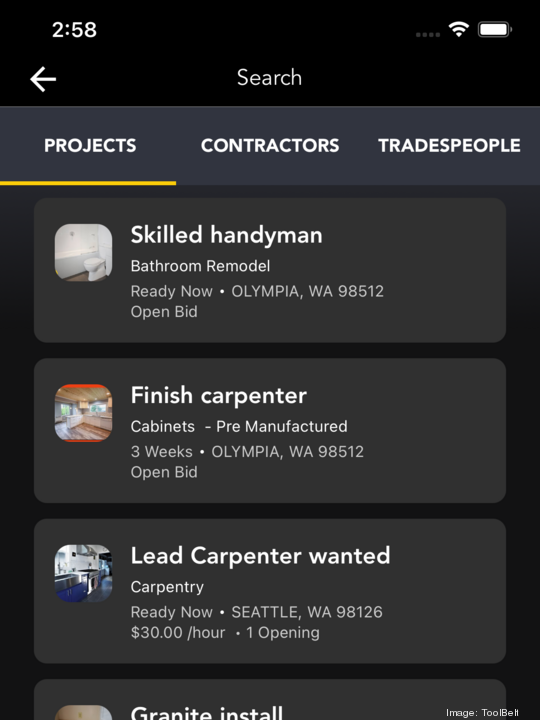
The latest: Earlier this year, the company raised $2.5 million from investors, led by HR Tech Investments, an affiliate of recruiting company Indeed. In the two years the company has been around, it has helped connect labor for $100 million worth of projects in Washington and Oregon.
Why you should watch it: While the construction industry has grappled with labor shortages for years, a boom in residential construction brought on by remodeling, spurred by Covid-19 lockdowns, and a surge in single-family homebuilding, has stressed the industry further. The company notes that homeowner demand is outstripping contractor capacity by 70%. Toolbelt’s product aims to help those in the industry meet that demand and grow their own businesses.
What’s next: Toolbelt recently made executive hires and continues to hire for engineering and operations talent. It is also planning to expand along the West Coast.
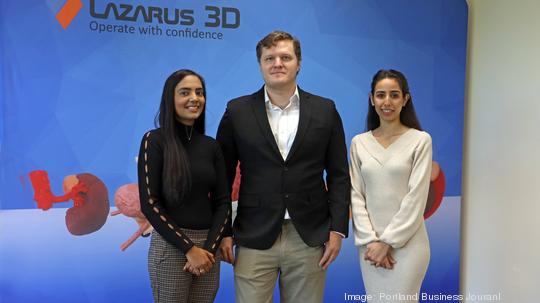
Lazarus 3D
Headquarters: Albany, Oregon
Founder(s): Dr. Smriti Zaneveld, Dr. Jacques Zaneveld, Mouna Taroua
What it does: Builds training models and patient-specific replicas of a variety of organs — brain, heart, lungs, bladder, genitalia and more — on 3D printers. The model organs can be cut and sutured and are used for surgical rehearsal and planning.
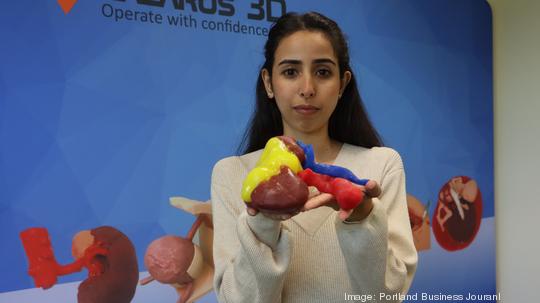
The latest: The company started in Houston while the Zanevelds were genetics grad students at Baylor College of Medicine in Houston. They moved to Oregon earlier this year. Over the summer they received FDA clearance to sell patient specific models for genital and urinary conditions using patient MRI and CT scans. The company also won the emerging company award at this year’s Technology Association of Oregon awards program.
Why you should watch it: Lazarus 3D’s founders are not surgeons, but they are dedicated to making surgeons’ lives easier. The products are key for surgeons to rehearse a surgery before cutting into a real human being. While model organs are commonly used in medicine, they tend to be either hard plastic or even fruits and vegetables, so there’s nothing quite like Lazarus’ products on the market. If they can convince insurance companies that the models will reduce medical error and save money in the long term, the Zanevelds could see their idea take root widely.
What’s next: Lazarus 3D is raising a $10 million seed round and is gearing up for patient-specific sales.
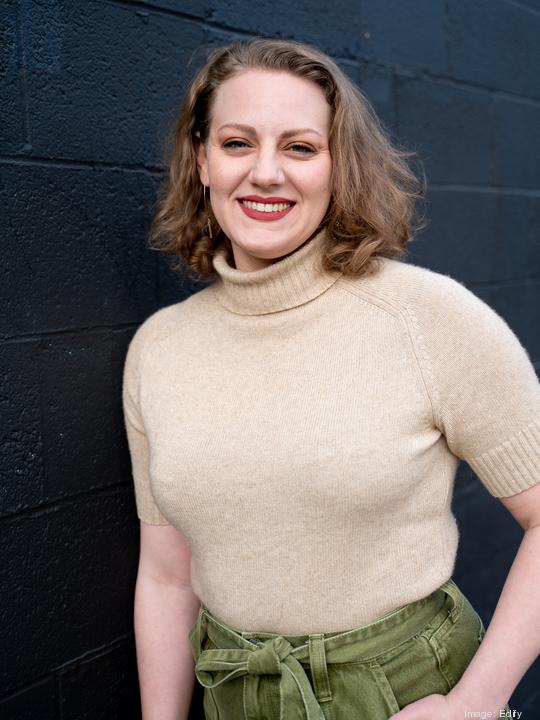
Edify
Headquarters: Portland
Founder(s): Kristen Buchanan
What it does: Its software tool, called Eddy, helps automate the onboarding process for engineering organizations. The tool lives in Slack and walks new engineering hires and their managers through the onboarding process in a scheduled and structured manner.
The latest: Earlier this year the company raised $1.5 million from investors and participated in the Techstars Seattle program. In May it launched Eddy for wide release after testing it with about 20 beta customers for about a year.
Why you should watch it: Buchanan has built HR education and onboarding programs for engineering teams for years. She turned it into a software tool prior to the Covid-19 pandemic, but the push to remote work and remote hiring may be meeting the startup at the right time. Plus, engineering hiring seems to be recession proof, or at least pandemic proof as companies across the board look for tech talent.
What’s next: The company has signed on 85 customers and continues to refine the tool.
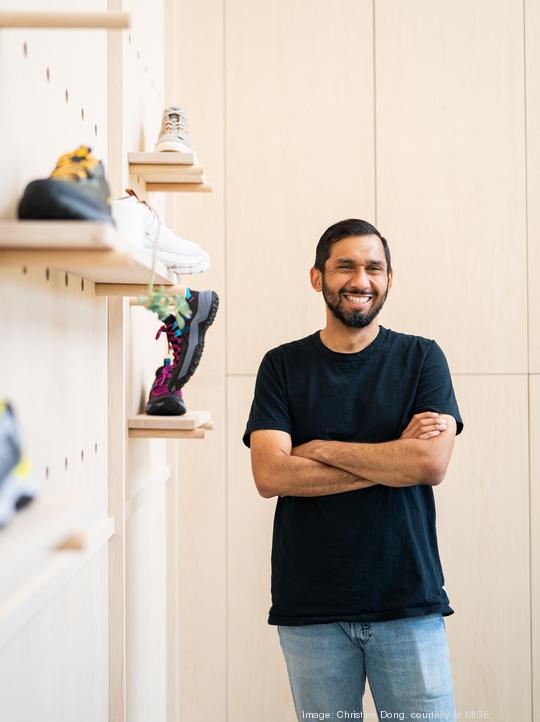
Mise
Headquarters: Portland
Founder(s): Erik Hernandez
What it does: Mise is a product of Studio Noyes, a footwear design firm that largely contracts with other brands. Mise is a shoe designed from the ground up for the needs of chefs and other restaurant, bar and service industry professionals. It is an idea incubated within the studio where Hernandez has been a designer for five years.

The latest: The startup delivered 160 test pairs of shoes to chefs and professionals in 75 kitchens, bars and cafes across Portland as well as chefs across the country. The company is collecting feedback from testers.
Why you should watch it: Portland knows shoes. It also knows food. But, those two industries haven’t teamed like this before. In fact, Hernandez noted that the idea came about years ago when friends in the service industry would ask the footwear industry veteran if any of the companies he worked for would ever make a shoe for them. The service industry may be a niche market but there could be openings elsewhere. It’s also an experiment for Studio Noyes in making its own brand.
What’s next: Pre-orders are set to open this month. Hernandez has bootstrapped the development so far. He hopes pre-orders can cover the initial purchase order, though he is also open to partners for other funding options.
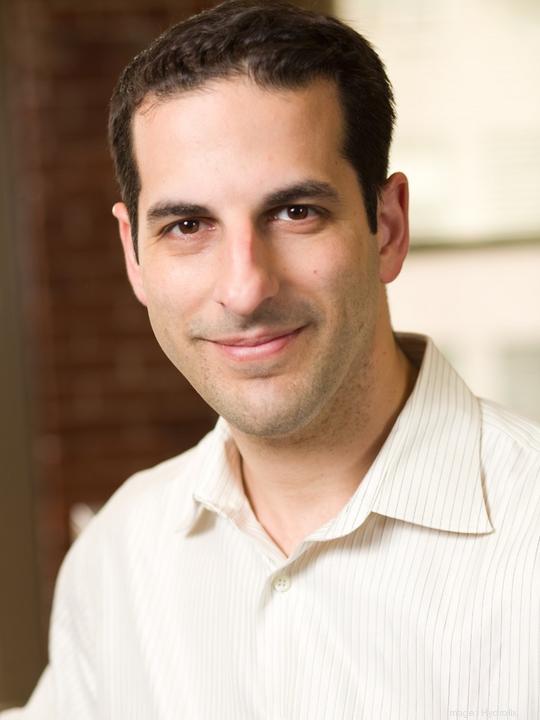
Hydrolix
Headquarters: Portland
Founder(s): Marty Kagan, Hasan Alayli
What it does: Make software that changes data storage and query economics for businesses. The product is aimed at managing data that doesn’t change, such as logs for observability. Hydrolix wants to help companies meet data retention needs.
The latest: The company has built the software since 2018 and made it generally available earlier this year. Hydrolix also announced that it had raised $10 million over a couple rounds from investors.
Why you should watch it: Hydrolix is the latest company from Kagan, who previously founded Cedexis, a company that eventually sold to Citrix. Hydrolix is aimed squarely at a data challenge that is growing for companies and one that has budgets attached to it. That’s a different feeling for Kagan, who with Cedexis was trying to build a new market in intelligent DNS and traffic management.
What’s next: The company is in a big market, but it is also a crowded one. It is highlighting case studies of customers’ technical and financial savings and it’s expanding to run on more cloud providers. Hydrolix also has a free software-as-service version coming next year for developers and small businesses.



